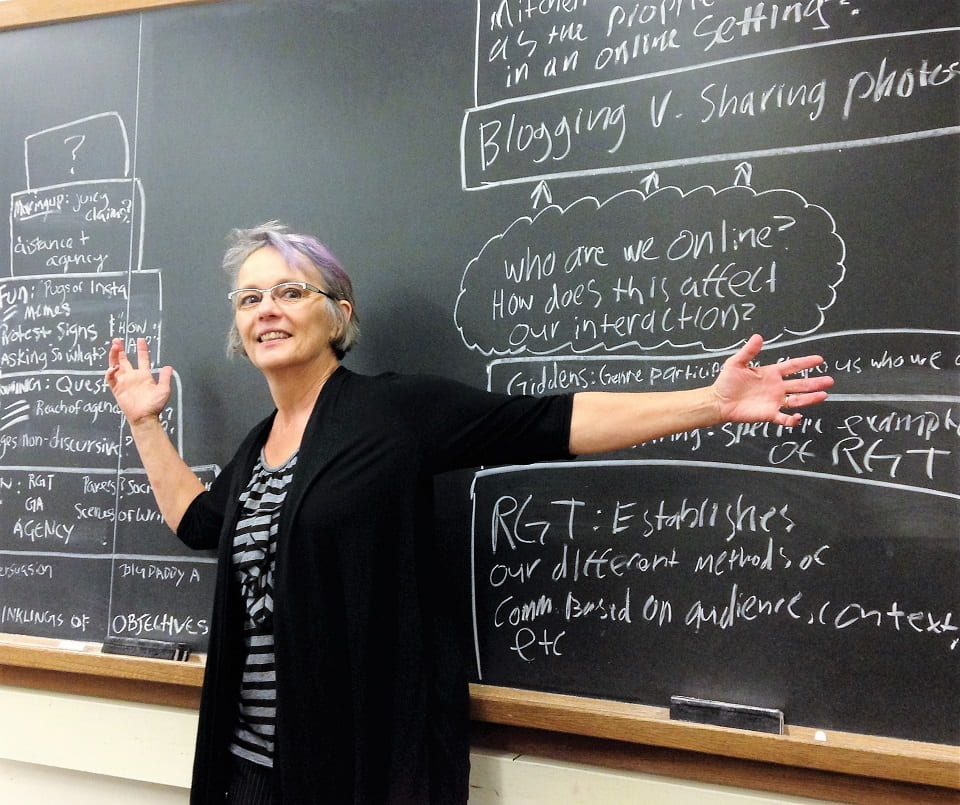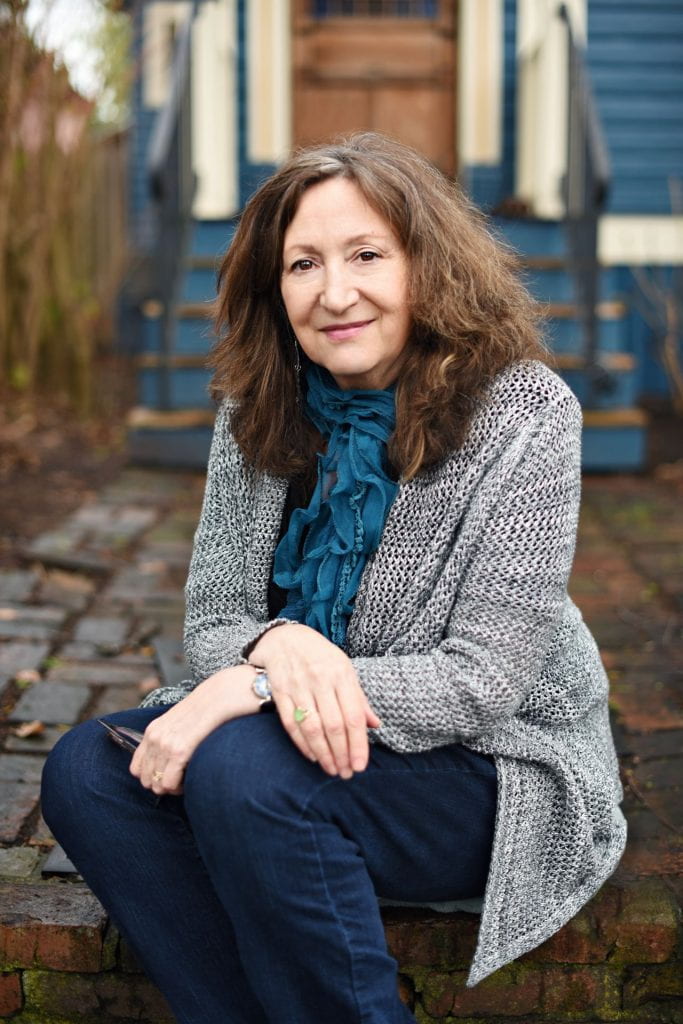
With much appreciation, we wish all the best to Cathy McDonald, who is retiring this year after nineteen years of teaching and serving the department. Known for her joyous smile, generous and fun-loving spirit, as well as her always-open office door (where anyone could pop in and help themselves to her jar of peanut butter pretzels), Cathy has continually demonstrated that teaching and learning are about cultivating relationships, both in and out of the classroom.
Cathy came to Western in 2003 when she was hired to serve as the Assistant Director of Composition (AD), a position she held for nine years. As the AD, Cathy was much beloved by the many cohorts of graduate student instructors who frequented her office to seek advice or just plop down in her comfortable chair to talk about their teaching and graduate studies work in the presence of a good listener.
Cathy earned her PhD from the University of Washington in Language and Rhetoric in 2006. A specialist in rhetorical genres studies, discourse, and language, she has been an essential member of the writing studies team. In 2009, she was awarded the Ronald Kleinknecht Award for Excellence in Teaching.
For the last decade, Cathy has continued to teach a range of writing studies and language courses while also developing new GUR courses in young people’s literature and disability studies. She has assisted with summer advising and been an advocate for the department’s teaching faculty.
When she departs Western, she’ll enjoy time with her grandchildren, volunteer at the Humane Society, and continue to foster kittens. However, don’t be surprised if you see a woman in a purple wig skydiving out of the Bellingham skies (yes, it’s on her to do list). Or perhaps, she tells me, she’ll just take a trip to Egypt. She’ll probably do both.
For years, Cathy donated paintings created by her husband Kevin to anyone looking for some art to liven up their workspace. Long after Cathy has moved on to her next adventures, these paintings will continue to brighten the walls of TA, faculty, and staff offices, reminding us of her colorful and magnanimous presence. (And Cathy, we apologize for using too many of the “Mr. Rogerism” platitudes that you taught generations of students to avoid. We are happy to have been your neighbor.)







